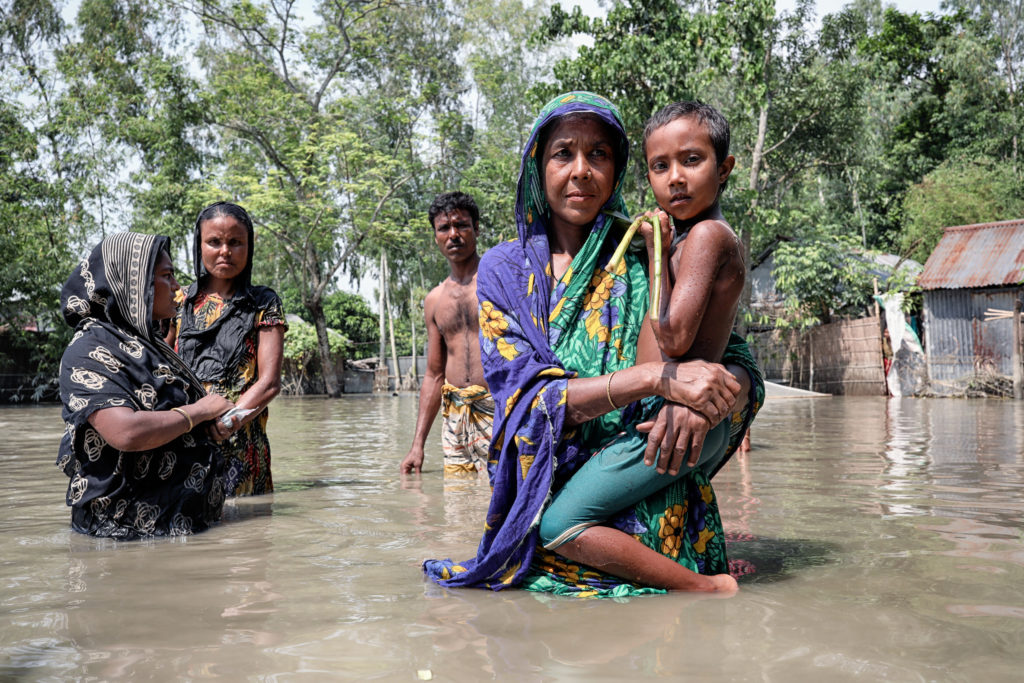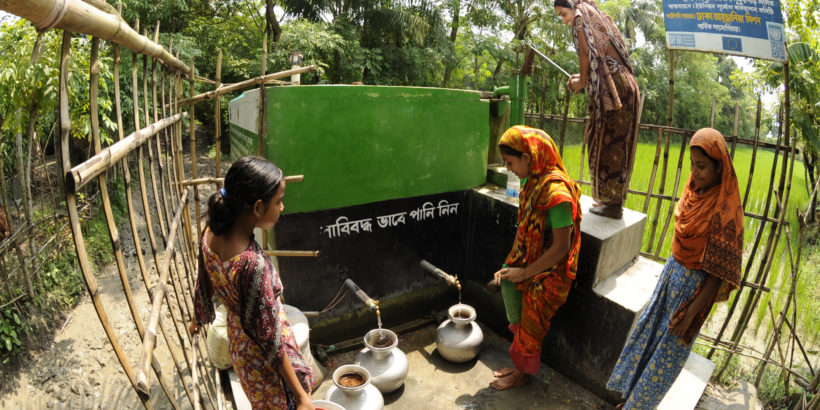Water is intrinsic to good health. From going to the bathroom and washing hands; to preparing and cooking food and cleaning; to helping our body stay healthy—it is part of nearly everything we do. Without it, people and their health can suffer greatly.
Unfortunately, 1 in 3 people in the world lack access to clean, safe water, many of whom live in low- and middle-income countries. These countries often lack improved water and sanitation infrastructure, leaving people vulnerable to many infectious and communicable diseases, including waterborne diseases such as typhoid. Transmission of typhoid, an acute febrile illness caused by Salmonella enterica serovar Typhi, occurs via ingestion of contaminated food or water. These settings are also highly vulnerable to climate change-induced severe weather events that can make water more scarce, unpredictable, and polluted—all signs that point to increased transmission of typhoid and other waterborne diseases.

Fortunately, there are actions that we can take right now to reduce the burden of waterborne diseases, increase access to clean, safe water, and stave off the worst effects of climate change:
- Implement effective water, sanitation, and hygiene (WASH) interventions. As my research group at Tufts University has demonstrated in our evaluation of the effectiveness of water and sanitation interventions in low- and middle-income settings and emergency contexts, individual-level interventions, such as handwashing and household water treatment, can greatly reduce the burden of waterborne diseases, including typhoid.
- Advocate for increased investments in improved water and sanitation infrastructure. Without increased and sustained investments to improve access to clean, safe water and improved infrastructure at the community- and national-level, individual-level interventions will not be as successful. We need political will and resource mobilization to ensure that funding is allocated to support expanded access and climate-resilient infrastructure projects.
- Use water more efficiently. By improving water practices and investing in infrastructure improvements, our water use will in turn become more efficient and sustainable, allowing us to be better stewards of this precious resource.
World Water Day is a time to highlight that, as part of a global strategy to reduce the burden of typhoid and other infectious diseases worldwide, water is essential. There are actions that we can and should implement at the individual-, community-, national-, and global-level to improve access and reduce the risk of typhoid transmission, especially in the face of climate change. By doing so, we can help make progress toward the Sustainable Development Goals, helping more people gain access to safe water and improved sanitation. This, coupled with vaccination and medical interventions will help to take on typhoid and ensure health for all.
Cover photo courtesy of Department for International Development/Rafiqur Rahman Raqu.



